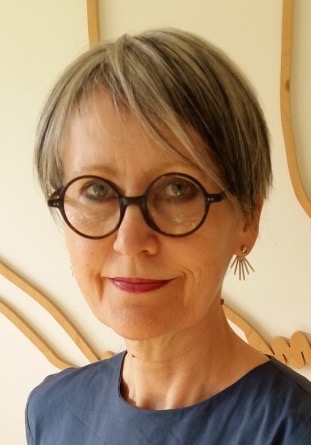Taking Heart
- Elise V Allan

- Jun 10, 2020
- 3 min read
first published May 2018

As I continue to read about different people’s morning routines, I realise I’m most inspired by those whose routines are open to regular changes and adaptations, and can allow for a degree of disruption. Those people are often involved in the arts, or in some type of personal growth. No surprise there; restlessness often accompanies the pull to creativity, and if we are to keep our creativity alive we need to be constantly realigning ourselves to the present. Each addition or subtraction to a piece of work puts us in a new place, where disorientation is an inevitable part of the process.
A willingness to embrace getting lost, and not-knowing, takes courage. Bearing in mind that the word ‘courage’ has the same roots as the French for the heart, ‘le cœur’, we need to be able to take heart as we move forward without certainties, and with no guarantee that we’ll reach a successful outcome. But there are times when disruption happens in more than one area of our lives, or when a single major change is overwhelming. Painful things happen to all of us at some time or another, and during any of those times we can feel as if we have lost heart.
Finding ourselves struggling to adapt to changed circumstances, or to recover from worries or losses, we can be caught in our longing for more time, space, resources, optimism, or inspiration. We can find ourselves wishing that things were different; want old illusions of security and certainty back. We might fall into a depressed mood, anger that the outer world won’t change to suit us, or a feeling of defeat.
As artists, writers, designers, most of us will have experienced times when our work in progress has been nothing but a chaotic mess of words, shapes or ideas. And many love the process enough to hold faith, and to know that even if this piece of work fails spectacularly, we will go on to try again. The longer we’ve been practicing, the more aware we will have become of the waves, with their peaks and troughs, and the more we will have learned about surfing them.
But when it seems as if a huge wave has knocked us right off the surfboard and we can no longer tell up from down, it can feel difficult to hold our love of the process. We need to make sure we don’t drown; acknowledging the realities of the circumstances, recognising when it’s possible to deal with it alone; but knowing when it’s time to ask for help, whether from a therapist, a financial advisor or anyone else with the appropriate skills, knowledge or expertise.
As we consider starting again we might need some recovery time, to restore our courage and take heart. We might feel a strong pull to focus on the trauma of the disruption, and our reactivity. (I’m sure I’m not the only person to have inner tantrums…) But it’s possible to commit to seeking a little space inside, between self and our sub-personalities, especially the ones that would keep the reactivity going, and to keep considering, “What is the kindest thing I can do in the circumstances? For myself, for my life, for the lives around me?” Creativity is attracted to those little spaces and is usually willing to support us. Love waits for us in those little spaces, and whether we return to creating very slowly and gradually, or in an intense catharsis of creativity, we can find that we have, once more, taken heart.
*image: Leda Weeping, 1984, Elise V Allan




Comentários